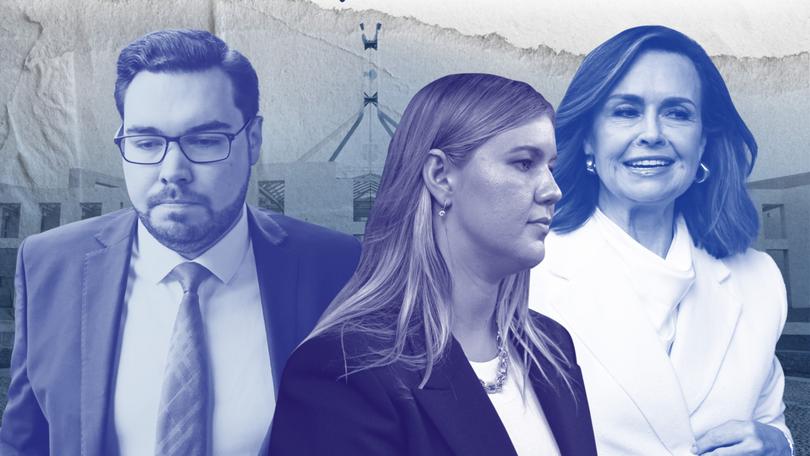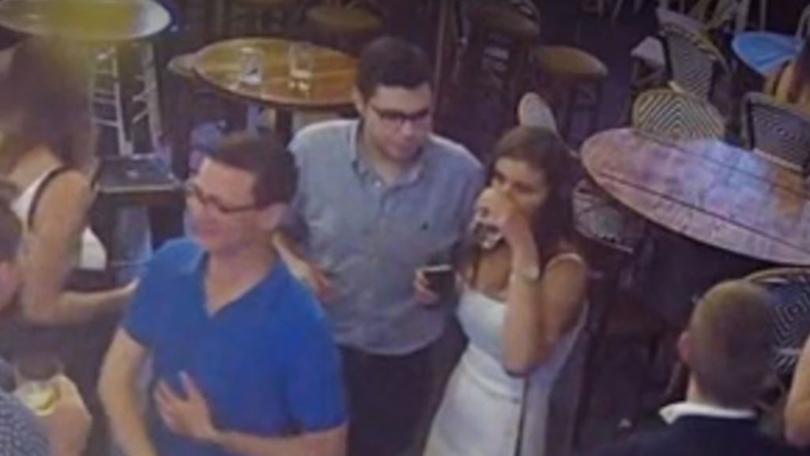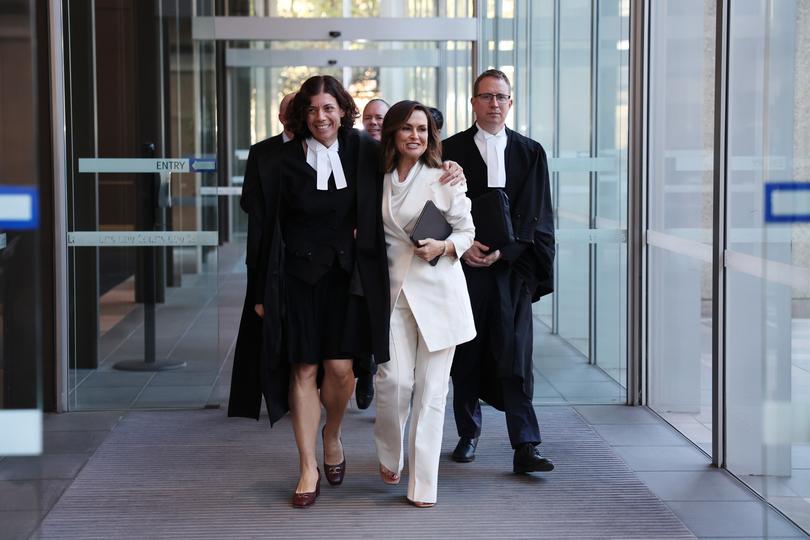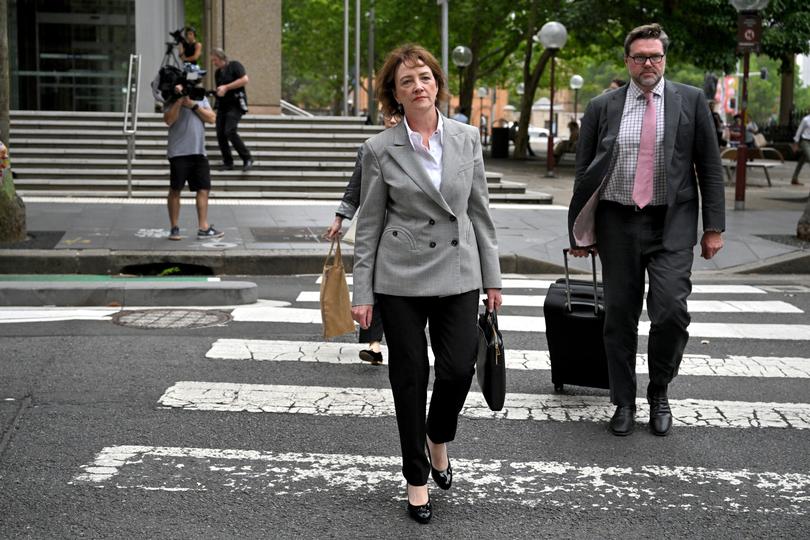CHRISTOPHER DORE: Bruce Lehrmann finally, officially, a rapist after Justice Michael Lee’s incisive judgment

Fantasist. Liar. Cheat.
Bruce Lehrmann is now, finally, officially, a rapist.
It’s taken the incisive, scrupulous Federal Court Justice Michael Lee, bombarded with breathtaking bullshit and bothersome breadcrumbs, weaving through years of false accounts and invented conspiracies to eventually settle on a finely calibrated narrative.
Sign up to The Nightly's newsletters.
Get the first look at the digital newspaper, curated daily stories and breaking headlines delivered to your inbox.
By continuing you agree to our Terms and Privacy Policy.Justice Lee has reconstructed precisely, painfully, graphically, what most likely happened in those 40 minutes early one autumn morning five years ago when a juiced-up and grossly indifferent Lehrmann led his inebriated and naive young colleague into their boss’s Parliament House office.
The disgusting misadventure that unfolded may not have begun as an intentional act, but culminated, clearly and categorically, in a gruesome reckless act of rape against a young woman incapable of giving consent.
Having “hooked up” at a nightclub earlier that evening, Lehrmann was “hell-bent on having sex” with Higgins that night, was well aware of her alcohol-induced incapacity, but was “so intent upon gratification” that he “did not care one way or another”.
In the end, the only witness Justice Lee could reliably trust to thread his way through the lies was Lehrmann’s accomplice in the sordid, squalid sexual assault — alcohol.
Justice Lee meticulously assessed the consumption of drinks over three venues that night, much of it captured on CCTV footage and poured over frame by frame, to conclude that Higgins, by 2.30am was “passive like a log”, in no state to consent, and certainly unable to resist Lehrmann’s sexual deviancy.
While Higgins was long concerned that Justice Lee was unsympathetic to her case, those fears were proven unfounded today.
Justice Lee did not spare Higgins from criticism, including that she fabricated a photograph of a bruised leg and that she wiped crucial messages from her phone. She was a complex and unsatisfactory witness. Her evidence riddled with “inconsistencies and untruths”.

But Justice Lee was satisfied that, despite all that came before, when Higgins took to the witness box in this trial, sat before him, and faced the brutal cross-examination from Lehrmann’s lawyer, she was, in fact, giving a more or less honest account of what happened that night in 2019.
Justice Lee constructed two versions of Brittany Higgins in his judgment.
One, in the immediate aftermath of the assault, in a state of confusion, fear, uncertainty. Her behaviour, at times odd, and seemingly irrational, was entirely understandable for a young woman who was raped. He could forgive her for an array of forensic flaws. Her behaviours, rather than those of someone making up a false accusation, could rather be seen as the typical, normal reactions of a rape victim.
And then there was a second version of Brittany Higgins.
One that emerged in 2020, when her now fiancé David Sharaz “came into her life”. Sharaz introduced Higgins to the News Corp journalist who broke her story, Sam Maiden, and steered the accusations into The Project. This is where a deeply personal, shocking assault was transformed into a political cover-up, designed to ruin careers and destroy a government.
The stated aim of Sharaz and The Project, as captured on an audio recording, was to do maximum political damage. Higgins never imagined her ordeal becoming a criminal charge, and predicted even then that if it did, she would fail to convince a jury. She was far more confident that she could however convince a judge in a civil trial, on the balance of probabilities, that she did not consent to sexual intercourse with Lehrmann.

The irony in the political cover-up fiasco was the focus of the subsequent outrage landed on a political apparatchik called Fiona Brown, who ran the office in which Higgins was raped.
Higgins and The Project were scathing of Brown, accused her of failing to act properly at the time of the rape and being more concerned with stopping it from descending into a political scandal.
Of all the witnesses who presented in this defamation trial, Justice Lee relied most on Brown to ultimately find in Higgins’ favour.
There was no political conspiracy, no cover-up. But Brown’s contemporaneous notes, detailing her discussions with Lehrmann and Higgins in the days after the rape were critical in building a foundation for Justice Lee’s eventual conclusions.
Higgins, and her supporters, including Wilkinson, should be apologising to Brown. Apologising, and thanking her.
There will be a lot of re-writing of history in the aftermath of this tragic fiasco.
It has begun already.

Ten and Wilkinson, in claiming victory in this defamation trial, should be careful not to lose sight of what they are so happy about, what they are celebrating.
When Justice Lee explains in such torturous detail how this rapist Lehrmann treated a lifeless and helpless 24-year-old woman that night, when you listen to his graphic, no-holds-barred account of this rape, and read the words back, one has to wonder why Wilkinson would stand before the press so pleased with herself, yet again, in a replay of her ridiculous Logies speech.
Wilkinson feels personally vindicated, standing on those court steps today, reprising the same old lines. It is unedifying. Spectacularly so, when you consider what Justice Lee said of her conduct in his judgment minutes earlier.
- “Ms Wilkinson was a fourth estate éminence grise with 40 years’ experience — she gave evidence she was appointed a Member of the Order of Australia in 2016 for, among other things, services to broadcast and print journalism.
- “She ought to have known the (Logies) speech was fraught with danger and recognised that lauding a complainant on the eve of a rape trial in the terms she did would be apt to undermine the due administration of justice.”
- Her gloating galling, as the judgment showed Wilkinson was a mere puppet to the producers at Ten, reading a script. That’s what she argued in her final submissions to the judge by the way. Yet today, in her speech of personal justification, it was “her” story again, “her” journalism.
Justice Lee, although finding in favour of Ten in agreeing the rape did occur, was scathing of the network’s in-house lawyer, Tash Smithies, accusing her of professional misconduct over the Logies speech, which postponed the aborted criminal trial, and was also dismissive of the journalism conducted by The Project.
The Project failed to act reasonably in the way it originally published Higgins’ allegations.
Few of us could truly comprehend the loneliness of a victim, the confusion, the sleepless nights, the aching, endless anxiety, the ever-present self-doubt and inner turmoil.
Higgins should feel vindicated and relieved today. Will she ever be at peace? Unlikely. So many around her, the bad actors, the political players, those grand of gesture, will certainly lack the awareness to feel shame for the way they have conducted themselves.
It’s obvious, Higgins’ wellbeing has been a secondary consideration for many overwhelmed by their irresistible egos and personal vendettas.
And as for those who have blindly backed Lehrmann? Well, you have to wonder I guess.

